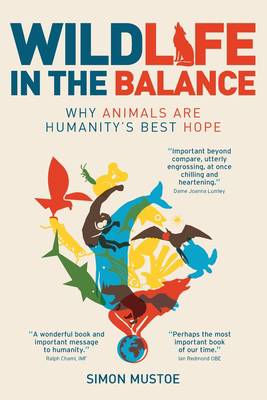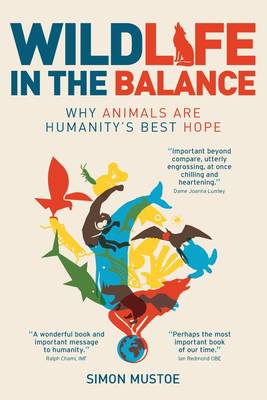
- Retrait gratuit dans votre magasin Club
- 7.000.000 titres dans notre catalogue
- Payer en toute sécurité
- Toujours un magasin près de chez vous
- Retrait gratuit dans votre magasin Club
- 7.000.000 titres dans notre catalogue
- Payer en toute sécurité
- Toujours un magasin près de chez vous
Description
Why do you think animals exist? What purpose do they serve and why do we need them? Wildlife in the Balance is the untold story of how animals are essential for a habitable planet.
Earth's function only starts to make sense when you realise that humans are another animal and wildlife conservation is the missing link in ecosystem stability.
Today, we're deforesting primary wildlife-rich ecosystems faster than ever, and they are being replaced with regrowth and empty vegetation. But without wildlife, the science simply doesn't add-up - we just haven't worked this out yet.
Wildlife in the Balance offers a new perspective, a sly glance from the side, an initial dose of cynicism and preparation to rethink what you may have learnt about concepts like natural selection, evolution, ecosystems and conservation. Things don't quite work like you were taught at school or led to believe by decades of popular science.
Immutable laws of nature would see Earth descend into chaos, unfit for human life, if it weren't for the world's colourful and abundant wildlife. Animals turn nature's infinite power back on itself. It's the sheer magnitude of animal impact, the interminable amplification, concentration and transfer of energy and nutrients at every scale, that makes our lives possible.
All animals - humans included - constantly dig, break things, construct and recycle. Successful animals communicate with each other to avoid competition, creating harmony between animals and maximising the efficiency of planet-stabilising work.
When we take a fresh look at the origin of our own species, we realise this is the reason behind our rise as one of the latest and most successful animals. It's why we must learn from our ancient ancestors and Indigenous relatives.
The impact of all animals working together adds up to the services we need to exist on Earth, but we still need a system to network with each other. This is where culture and intelligence comes in. It relates directly to our food security, disease resilience and even our climate.
Wildlife protects us from the solar system's violent attacks, cushions us from the storms, gives us air to breathe and stocks Earth's pantry with food to eat.
We have eroded these systems and failed to value them to our peril. We may have just a few generations left before the next mass extinction, and that gives us mere decades to do something about it.
But protecting animals is a simple, achievable and rewarding objective we can all get behind to secure our fragile existence on Earth. Conservation can solve most of the world's problems.
As we enter a new phase of human existence, one of self-preservation, saving animals is the only thing that will work, because only animals can rebuild the complex life-supporting ecosystems we need. To restore humanity and create a new path for human survival means giving animals room to recolonise and sharing our planet with them.
This means inspiring a global change in human values to wildlife, one in which we treat animals equally, because all animals have an equal role to play in each other's future. Animals aren't commodities; they are the sole mechanism that delivers human life support. Even conservation can't thrive until everyone learns this.
The critical importance of wildlife for a habitable planet is perhaps the greatest untold story of our generation. And their extinction will become the greatest challenge we face, even greater than climate change.
Spécifications
Parties prenantes
- Auteur(s) :
- Editeur:
Contenu
- Nombre de pages :
- 346
- Langue:
- Anglais
Caractéristiques
- EAN:
- 9780645453508
- Date de parution :
- 29-09-22
- Format:
- Livre broché
- Format numérique:
- Trade paperback (VS)
- Dimensions :
- 152 mm x 229 mm
- Poids :
- 508 g







